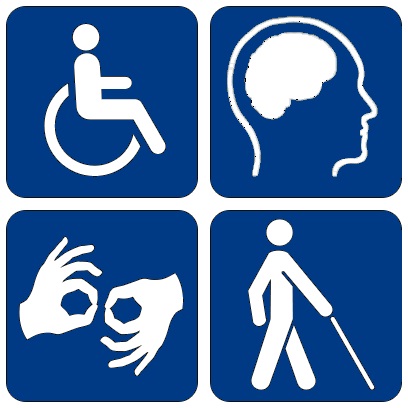
The Equality Act 2010 sets out the rights and responsibilities of disabled workers, who are either mentally or physically disabled, protecting them against discrimination in the workplace.
To clarify, an employee can be categorised as disabled if they have a long-term physical or mental impairment, which hinders them from carrying out everyday tasks in the workplace, which could include: manual handling, Navigating a computer, colleague interaction, etc.
There are various types of disability discrimination, including:
- Direct Discrimination, which occurs when a staff member is treated unfairly due to their disability. For example, an employee with a disability is dismissed due to frequent absences, however the employer did not hold any meeting with the employer to understand the reasoning behind the absences, which are most likely related to their disability.
- Indirect Discrimination - This occurs when an employer’s policies and procedures put employees with a disability at an unfair advantage. For example, an employer may offer a promotion to employees with a driving license, which discriminates against employees with certain disabilities, specifically those who are wheelchair bound and therefore cannot drive.
- Harassment - This occurs when an employee receives unwanted conduct in relation to their disability which causes distress and humiliation, making their work environment unsafe. For example, an employee with an eating disorder is ridiculed for their eating habits.
- Victimisation - This occurs when an employee is treated unfairly after making or assisting with a complaint regarding disability discrimination. For example, an employee is being treat unfairly due to their mental disability, however is not able to communicate their issue, therefore their colleague may make the complaint for them, and as a result is treated unfairly by other staff members.
- Discrimination arising from Disability – This occurs when an employee is treated unfavourably, in relation to their disability, although not directly related to the disability itself. For example, an employee with a disability may need more time of due to their disability, however as a result of these absences they are unlawfully dismissed.
- Failure to make Reasonable Adjustments - This occurs when an employer promises to provide adjustments for a disabled employer but fails to do so. For example, an employer hires an employee who is disabled and promises to make the correct adjustments, however after three months at the company, there are still no adjustments in place, which may cause the employee to suffer.
If you feel as though you have experienced any of the above, you must inform the appropriate person of your complaint in the form of a grievance letter or meeting. Allow your employer to deal with the complaint on an informal basis first, however if you are dissatisfied with how your complaint has been dealt with you can take it to an Employment Tribunal.
Here at Three Graces Legal we can help anyone who has experienced sex discrimination in the workplace.
Please contact us on 0151 659 1070 to see how we may be of assistance.




